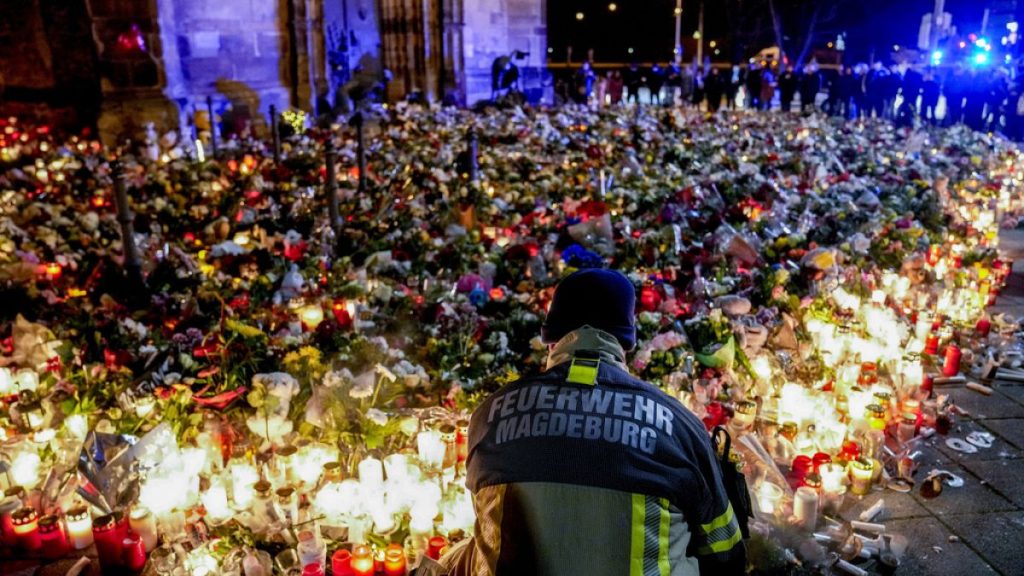The aftermath of the tragic car attack at a Christmas market in Magdeburg, Germany, which claimed six lives and injured over 200, has been marred by a wave of misinformation and political opportunism. False narratives surrounding the attacker’s identity and motivations have proliferated online, often fueled by politicians and social media users seeking to capitalize on the tragedy for their own agendas. This manipulation of the incident highlights the vulnerability of online information ecosystems and the potential for such events to be exploited for political gain, particularly in the lead-up to elections.
One prominent example of this misinformation involves a video falsely claiming to depict the arrest of Muslim extremists linked to the attack. The video, which actually shows Berlin police arresting participants at a pro-Palestine demonstration a day before the Magdeburg incident, has been widely shared with misleading captions. This deliberate misrepresentation not only distorts the truth but also contributes to a climate of fear and distrust, potentially exacerbating existing social tensions. Despite community notes and official police confirmations debunking the video’s connection to the attack, it continues to circulate, demonstrating the persistence of misinformation and the challenges in correcting false narratives once they take hold.
The incident has been particularly politicized within the context of Germany’s impending federal elections. Certain politicians, notably Alice Weidel, co-chair of the far-right AfD party, have seized upon the attack to advance their anti-immigration rhetoric. Weidel publicly labeled the perpetrator an “Islamist filled with hatred,” despite the attacker’s documented Islamophobic views and support for the AfD. This opportunistic framing of the tragedy aims to bolster the AfD’s platform by linking the attack to immigration and bolstering narratives of cultural clash. Such actions not only exploit the suffering of victims and their families but also contribute to a toxic political discourse that can further divide society.
Contrary to the narrative pushed by some political figures, the attacker, Taleb Al-Abdulmohsen, is an “atypical attacker” who has expressed aggressive criticism of Islam and support for the AfD. While no definitive motive has been established, his online activity reveals a history of Islamophobic views. Al-Abdulmohsen has described himself as the “most aggressive critic of Islam in history” and has aligned his goals with those of the AfD. Despite this clear contradiction to their rhetoric, the party has attempted to distance itself from the attacker, claiming no association with him. This distancing highlights the cynical nature of their initial attempts to exploit the tragedy for political gain.
The spread of misinformation extends beyond the attacker’s identity and motivations. Fabricated images and quotes have been attributed to various political figures, including Social Democratic MP Saskia Esken and Green politician Winfried Kretschmann, falsely depicting them as sympathetic to the attacker. These fabricated narratives are designed to damage the reputations of these politicians and influence public opinion against them. Even German President Frank-Walter Steinmeier was targeted with a false quote attributed to a parody account. The proliferation of such fabricated content underscores the importance of critical media literacy and the need to verify information before sharing it.
As Germany approaches its federal elections, the manipulation of the Magdeburg attack highlights the crucial need for accurate and unbiased information. The proliferation of misinformation, particularly within the context of a significant political event, threatens to undermine the democratic process by swaying public opinion based on falsehoods. It’s imperative for voters to critically evaluate information they encounter, rely on credible sources, and resist the temptation to share unverified claims. The responsibility for combating misinformation lies not only with individuals but also with social media platforms and fact-checking organizations, which play a vital role in identifying and debunking false narratives. Only through collective vigilance and a commitment to truth can the integrity of the democratic process be preserved.














